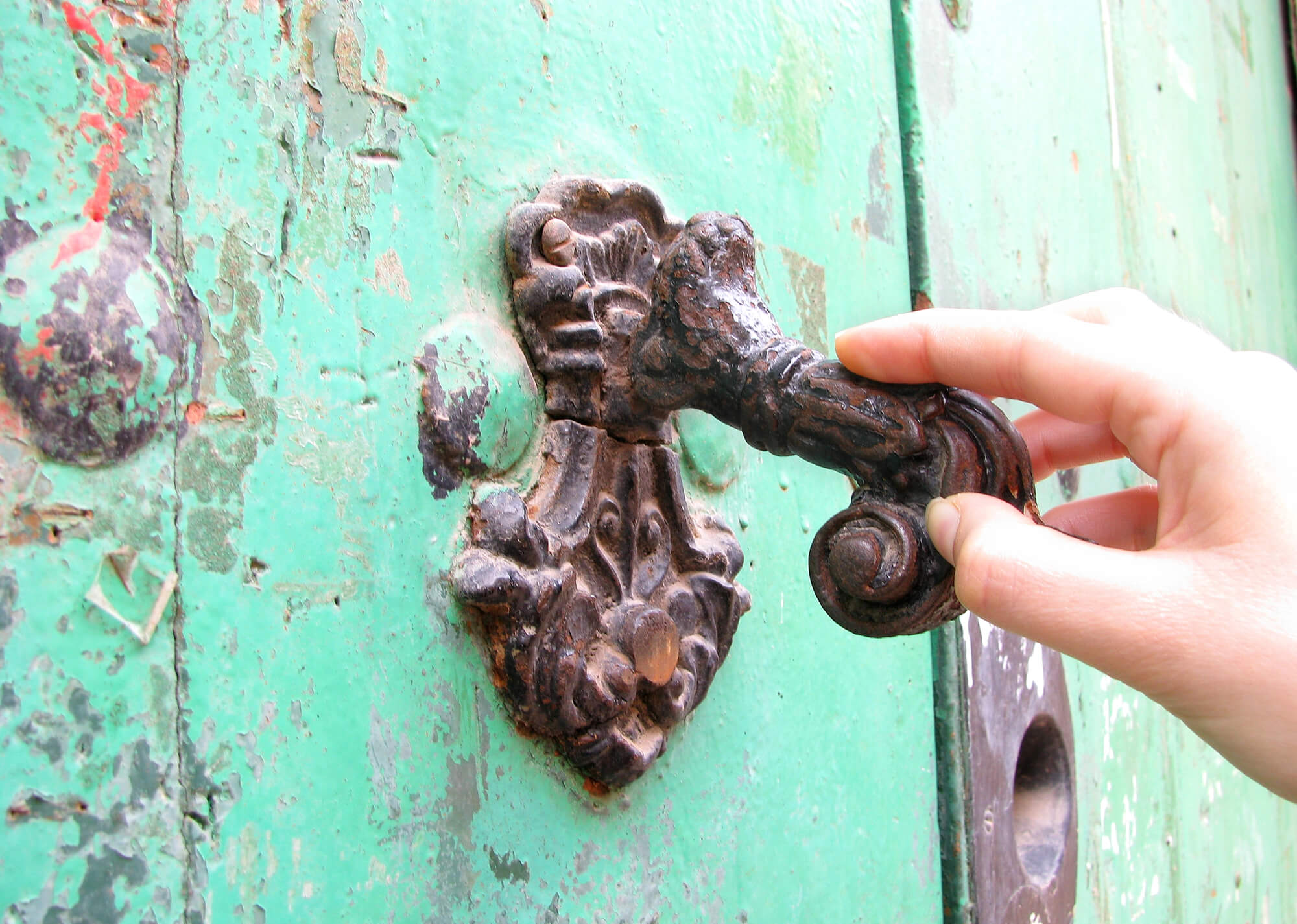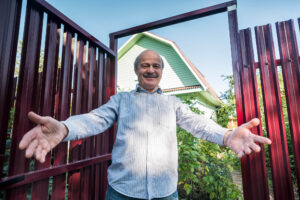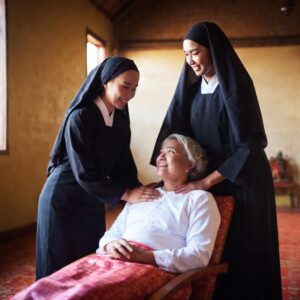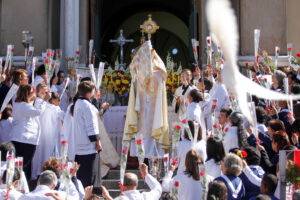
Ageless Lessons in Hospitality
July 12, 2024

Summer is a time for travel, and so it seems to be for our Lord, as well! July has found parishes and Catholic organizations playing host to the National Eucharistic Congress Pilgrims — and of course, to our Lord, Himself. The pilgrims of today, like pilgrims of the past, have relied on the hospitality of strangers to welcome and house them during their travels.
Today, when we think of hospitality, we may think of little shampoo bottles in a hotel bathroom, free coffee in a waiting area, or the greeter when you enter the market or restaurant. I think that our Biblical counterparts would scoff at such notions. Jewish law had a very specific prescription regarding how to deal with a stranger, and it far surpassed a mint on your pillow.
During Biblical times, a stranger appearing would be cause for suspicion and alarm. However, the Jewish people would not only embrace the stranger as a guest, but they were also required to tender the best of what they had to give, even if it was something they weren’t inclined to offer. This was not merely custom; it was Jewish law. This would diffuse any animosity, ultimately keeping the village or town safe from unrest that might occur if the stranger felt threated.

Perhaps having been strangers themselves, for so long in Egypt, further accounts for some of this. But I imagine that it was more than a historical experience or simply for protection that guided this principle. Our Jewish brothers and sisters were a people of oral history and stories, and arguably the greatest stories are contained in Holy Scripture. Our creation story in Genesis contains the sum of all of lessons about humanity. It speaks of Our Heavenly Father readying the world with abundant gifts for us. What a generous and compassionate host! And in this world, He placed the gift of life in us, the Imago Dei. This alone, is a spectacular idea. The fact that this is true, I would argue, is mind-boggling. This is the backdrop from which all Jewish culture was established.
Simultaneously, they recognized that the stranger had a shared humanity. They knew the lessons of Genesis and of the dignity of the human person. I would pose that this was also the source of their law about hospitality — it was a total giving of self as a reflection of God’s own actions toward us.

As our Catholic culture is rooted in this extend family of ours, including their laws of how to welcome a stranger, our own history is filled with a multitude of profound examples of hospitality as well. For centuries, monasteries and convents served as places for travelers to rest their weary bodies, to receive medical care for injuries or illness occurring on the road, and to receive food and shelter until they were ready to continue to their destination.
And just as Jesus’s biblical contemporaries removed the threat strangers represented and recognized their humanity, the hospitality extended by monks, and nuns, additionally provided the opportunity for brotherhood and sisterhood to be formed and fully experienced — even if for just a day.

This past week, we have welcomed the pilgrims and their most prominent traveling companion who — to some — seems to be a stranger hidden in disguise; yet this concealed stranger shares our humanity with us and is looking for hospitality in all of our hearts! He calls us to continually share this hospitality with one another by recognizing one another’s humanity – and the unrepeatable gift that each one of us is. It is a hospitality that isn’t afraid to meet people where they are — be it messy, tired, weak, lost, foolish, hungry or hesitant. It takes great efforts to treat others with the dignity that they deserve and that which we ourselves yearn for; it reaches out with open arms and open hearts. It says, “you matter.” It is given freely and unconditionally. This type of hospitality most certainly goes beyond little shampoos, free coffee or a hello at the door. While these small things are a great place to start, let us strive to emulate God as our model for hospitality — not just this summer, but always, in all things , and to all whom we encounter.

Written by,
Claudia Kimura, TOB Campus Administrator
ckimura@ruahwoods.org
Share